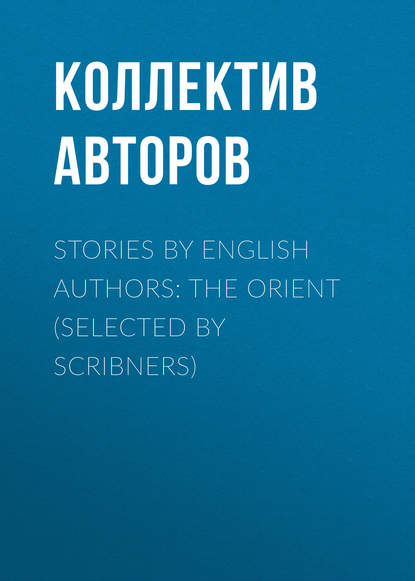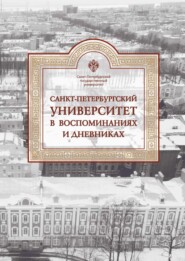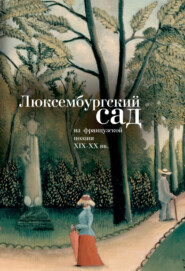По всем вопросам обращайтесь на: info@litportal.ru
(©) 2003-2024.
✖
Stories by English Authors: The Orient (Selected by Scribners)
Настройки чтения
Размер шрифта
Высота строк
Поля
“Well,” said her father, laughing, “if you can arrange in that way, go by all means, and the sooner you start the sooner I hope you will be back.”
Delighted at having gained the approval of her father to her scheme, Jasmine quickly made the arrangements for her journey. On the morning of the day on which she was to start, the results of the doctors’ examination at Peking reached Mienchu, and, to Jasmine’s infinite delight, she found the names of Tu and Wei among the successful candidates. Armed with this good news, she hurried to the prison. All difficulties seemed to disappear like mist before the sun as she thought of the powerful advocates she now had at Peking.
“Tu and Wei have passed,” she said, as she rushed into her father’s presence, “and now the end of our troubles is approaching.”
With impatient hope Jasmine took leave of her father, and started on her eventful journey. As evening drew on she entered the suburbs of Ch’engtu, the provincial capital, and sent “The Dragon” on to find a suitable inn for the couple of nights which she knew she would be compelled to spend in the city. “The Dragon” was successful in his search, and conducted Jasmine and his wife to a comfortable hostelry in one of the busiest parts of the town. Having refreshed herself with an excellent dinner, Jasmine was glad to rest from the fatigues and heat of the day in the cool courtyard into which her room opened. Fortune and builders had so arranged that a neighbouring house, towering above the inn, overlooked this restful spot, and one of the higher windows faced exactly the position which Jasmine had taken up. Such a fact would not, in ordinary circumstances, have troubled her in the least; but she had not been sitting long before she began to feel an extraordinary attraction toward the window. She did her best to look the other way, but she was often unconsciously impelled to glance up at the lattice. Once she fancied she saw the curtain move. Determined to verify her impression, she suddenly raised her eyes, after a prolonged contemplation of the pavement, and caught a momentary sight of a girl’s face, which as instantly disappeared, but not before Jasmine had been able to recognise that it was one of exceptional beauty.
“Now, if I were a young man,” said she to herself, “I ought to feel my heart beat at the sight of such loveliness, and it would be my bounden duty to swear that I would win the owner of it in the teeth of dragons. But as my manhood goes no deeper than my outer garments, I can afford to sit here with a quiet pulse and a whole skin.”
The next day Jasmine was busily engaged in interviewing some officials in the interest of her father, and only reached the shelter of her inn toward evening. As she passed through the courtyard she instinctively looked up at the window, and again caught a glimpse of the vision of beauty which she had seen the evening before. “If she only knew,” thought Jasmine, “that I was such a one as herself, she would be less anxious to see me, and more likely to avoid me.”
While amusing herself at the thought of the fair watcher, the inn door opened, and a waiting-woman entered carrying a small box. As she approached Jasmine she bowed low, and with bated breath thus addressed her:
“May every happiness be yours, sir. My young lady, Miss King, whose humble dwelling is the adjoining house, seeing that you are living in solitude, has sent me with this fruit and tea as a complimentary offering.”
So saying, she presented to Jasmine the box, which contained pears and a packet of scented tea.
“To what am I indebted for this honour?” replied Jasmine; “I can claim no relationship with your lady, nor have I the honour of her acquaintance.”
“My young lady says,” answered the waiting-woman, “that, among the myriads who come to this inn and the thousands who go from it, she has seen no one to equal your Excellency in form and feature. At sight of you she was confident that you came from a lofty and noble family, and having learned from your attendants that you are the son of a colonel, she ventured to send you these trifles to supplement the needy fare of this rude inn.”
“Tell me something about your young lady,” said Jasmine, in a moment of idle curiosity.
“My young lady,” said the woman, “is the daughter of Mr. King, who was a vice-president of a lower court. Her father and mother having both visited the ‘Yellow Springs’ [Hades], she is now living with an aunt, who has been blessed by the God of Wealth, and whose main object in life is to find a husband whom her niece may be willing to marry. The young gentleman, my young lady’s cousin, is one of the richest men in Ch’engtu. All the larger inns belong to him, and his profits are as boundless as the four seas. He is as anxious as his mother to find a suitable match for the young lady, and has promised that so soon as she can make a choice he will arrange the wedding.”
“I should have thought,” said Jasmine, “that, being the owner of so much wealth and beauty, the young lady would have been besieged by suitors from all parts of the empire.”
“So she is,” said the woman, “and from her window yonder she espies them, for they all put up at this inn. Hitherto she has made fun of them all, and describes their appearance and habits in the most amusing way. ‘See this one,’ says she, ‘with his bachelor cap on and his new official clothes and awkward gait, looking for all the world like a barn-door fowl dressed up as a stork; or that one, with his round shoulders, monkey-face, and crooked legs;’ and so she tells them off.”
“What does she say of me, I wonder?” said Jasmine, amused.
“Of your Excellency she says that her comparisons fail her, and that she can only hope that the Fates who guided your jewelled chariot hitherward will not tantalise her by an empty vision, but will bind your ankles to hers with the red matrimonial cords.”
“How can I hope for such happiness?” said Jasmine, smiling. “But please to tell your young lady that, being only a guest at this inn, I have nothing worthy of her acceptance to offer in return for her bounteous gifts, and that I can only assure her of my boundless gratitude.”
With many bows, and with reiterated wishes for Jasmine’s happiness and endless longevity, the woman took her leave.
“Truly this young lady has formed a most perverted attachment,” said Jasmine to herself. “She reminds me of the man in the fairy tale who fell in love with a shadow, and, so far as I can see, she is not likely to get any more satisfaction out of it than he did.” So saying, she took up a pencil and scribbled the following lines on a scrap of paper:
“With thoughts as ardent as a quenchless thirst,
She sends me fragrant and most luscious fruit;
Without a blush she seeks a phenix guest [a bachelor]
Who dwells alone like case-enveloped lute.”
After this mental effort Jasmine went to bed. Nor had her interview with the waiting-woman made a sufficient impression on her mind to interfere in any way with her sleep. She was surprised, however, on coming into her sitting-room in the morning, to meet the same messenger, who, laden with a dish of hot eggs and a brew of tea, begged Jasmine to “deign to look down upon her offerings.”
“Many thanks,” said Jasmine, “for your kind attention.”
“You are putting the saddle on the wrong horse,” replied the woman. “In bringing you these I am but obeying the orders of Miss King, who herself made the tea of leaves from Pu-erh in Yunnan, and who with her own fair hands shelled the eggs.”
“Your young lady,” answered Jasmine, “is as bountiful as she is kind. What return can I make her for her kindness to a stranger? Stay,” she said, as the thought crossed her mind that the verses she had written the night before might prove a wholesome tonic for this effusive young lady, “I have a few verses which I will venture to ask her to accept.” So saying, she took a piece of peach-blossom paper, on which she carefully copied the quatrain and handed it to the woman. “May I trouble you,” said she, “to take this to your mistress?”
“If,” said Jasmine to herself as the woman took her departure, “Miss King is able to penetrate the meaning of my verses, she won’t like them. Without saying so in so many words, I have told her with sufficient plainness that I will have nothing to say to her. But stupidity is a shield sent by Providence to protect the greater part of mankind from many evils; so perhaps she will escape.”
It certainly in this case served to shield Miss King from Jasmine’s shafts. She was delighted at receiving the verses, and at once sat down to compose a quatrain to match Jasmine’s in reply. With infinite labour she elaborated the following:
“Sung Yuh on th’ eastern wall sat deep in thought,
And longed with P’e to pluck the fragrant fruit.
If all the well-known tunes be newly set,
What use to take again the half-burnt lute?”
Having copied these on a piece of silk-woven paper, she sent them to Jasmine by her faithful attendant. On looking over the paper, Jasmine said, smiling, “What a clever young lady your mistress must be! These lines, though somewhat inconsequential, are incomparable.”
But, though Jasmine was partly inclined to treat the matter as a joke, she saw that there was a serious side to the affair, more especially as the colours under which she was sailing were so undeniably false. She knew well that for Sung Yuh should be read Miss King, and for P’e her own name; and she determined, therefore, to put an end to the philandering of Miss King, which, in her present state of mind, was doubly annoying to her.
“I am deeply indebted to your young lady,” she said, and then, being determined to make a plunge into the morass of untruthfulness, for a good end as she believed, added, “and, if I had love at my disposal, I should possibly venture to make advances toward the feathery peach [a nuptial emblem]; but let me confess to you that I have already taken to myself a wife. Had I the felicity of meeting Miss King before I committed myself in another direction, I might perhaps have been a happier man. But, after all, if this were so, my position is no worse than that of most other married men, for I never met one who was not occasionally inclined to cry, like the boys at ‘toss cash,’ ‘Hark back and try again.’”
“This will be sad news for my lady, for she has set her heart upon you ever since you first came to the inn; and when young misses take that sort of fancy and lose the objects of their love, they are as bad as children when forbidden their sugar-plums. But what’s the use of talking to you about a young lady’s feelings!” said the woman, with a vexed toss of her head; “I never knew a man who understood a woman yet.”
“I am extremely sorry for Miss King,” said Jasmine, trying to suppress a smile. “As you wisely remark, a young lady is a sealed book to me, but I have always been told that their fancies are as variable as the shadow of the bamboo; and probably, therefore, though Miss King’s sky may be overcast just now, the gloom will only make her enjoy to-morrow’s sunshine all the more.”
The woman, who was evidently in a hurry to convey the news to her mistress, returned no answer to this last sally, but, with curtailed obeisance, took her departure.
Her non-appearance the next morning confirmed Jasmine in the belief that her bold departure from truth on the previous evening had had its curative effect. The relief was great, for she had felt that these complications were becoming too frequent to be pleasant, and, reprehensible though it may appear, her relief was mingled with no sort of compassion for Miss King. Hers was not a nature to sympathise with such sudden and fierce attachments. Her affection for Tu had been the growth of many months, and she had no feeling in common with a young lady who could take a violent liking for a young man simply from seeing him taking his post-prandial ease. It was therefore with complete satisfaction that she left the inn in the course of the morning to pay her farewell visits to the governor and the judge of the province, who had taken an unusual interest in Colonel Wen’s case since Jasmine had become his personal advocate. Both officials had promised to do all they could for the prisoner, and had loaded Jasmine with tokens of good will in the shape of strange and rare fruits and culinary delicacies. On this particular day the governor had invited her to the midday meal, and it was late in the afternoon before she found her way back to the inn.
The following morning she rose early, intending to start before noon, and was stepping into the courtyard to give directions to “The Dragon,” when, to her surprise, she was accosted by Miss King’s servant, who, with a waggish smile and a cunning shake of the head, said:
“How can one so young as your Excellency be such a proficient in the art of inventing flowers of the imagination?”
“What do you mean?” said Jasmine.
“Why, last night you told me you were married, and my poor young lady when she heard it was wrung with grief. But, recovering somewhat, she sent me to ask your servants whether what you had said was true or not, for she knows what she’s about as well as most people, and they both with one voice assured me that, far from being married you had not even exchanged nuptial presents with anybody. You may imagine Miss King’s delight when I took her this news. She at once asked her cousin to call upon you to make a formal offer of marriage, and she has now sent me to tell you that he will be here anon.”
Every one knows what it is to pass suddenly from a state of pleasurable high spirits into deep despondency, to exchange in an instant bright mental sunshine for cloud and gloom. All, therefore, must sympathise with poor Jasmine, who believing the road before her to be smooth and clear, on a sudden became thus aware of a most troublesome and difficult obstruction. She had scarcely finished calling down anathemas on the heads of “The Dragon” and his wife, and cursing her own folly for bringing them with her, than the inn doors were thrown open, and a servant appeared carrying a long red visiting-card inscribed with the name of the wealthy inn-proprietor. On the heels of this forerunner followed young Mr. King, who, with effusive bows, said, “I have ventured to pay my respects to your Excellency.”
Poor Jasmine was so upset by the whole affair that she lacked some of the courtesy that was habitual to her, and in her confusion very nearly seated her guest on her right hand. Fortunately this outrageous breach of etiquette was avoided, and the pair eventually arranged themselves in the canonical order.
“This old son of Han,” began Mr. King, “would not have dared to intrude himself upon your Excellency if it were not that he has a matter of great delicacy to discuss with you. He has a cousin, the daughter of Vice-President King, for whom for years he has been trying to find a suitable match. The position is peculiar, for the lady declares positively that she will not marry any one she has not seen and approved of. Until now she has not been able to find any one whom she would care to marry. But the presence of your Excellency has thrown a light across her path which has shown her the way to the plum-groves of matrimonial felicity.”
Here King paused, expecting some reply; but Jasmine was too absorbed in thought to speak, so Mr. King went on:
“This old son of Han, hearing that your Excellency is still unmarried, has taken it upon himself to make a proposal of marriage to you, and to offer his cousin as your ‘basket and broom.’ [wife] His interview with you has, he may say, shown him the wisdom of his cousin’s choice, and he cannot imagine a pair better suited for one another, or more likely to be happy, than your Excellency and his cousin.”
“I dare not be anything but straightforward with your worship,” said Jasmine, “and I am grateful for the extraordinary affection your cousin has been pleased to bestow upon me; but I cannot forget that she belongs to a family which is entitled to pass through the gate of the palace [a family of distinction], and I fear that my rank is not sufficient for her. Besides, my father is at present under a cloud, and I am now on my way to Peking to try to release him from his difficulties. It is no time, therefore, for me to be binding myself with promises.”
“As to your Excellency’s first objection,” replied King, “you are already the wearer of a hat with a silken tassel, and a man need not be a prophet to foretell that in time to come any office, either civil or military, will be within your reach. No doubt, also, your business in Peking will be quickly brought to a satisfactory conclusion, and there can be no objection, therefore, to our settling the preliminaries now, and then, on your return from the capital, we can celebrate the wedding. This will give rest and composure to my cousin’s mind, which is now like a disturbed sea, and will not interfere, I venture to think, with the affair which calls you to Peking.”
As King proceeded, Jasmine felt that her difficulties were on the increase. It was impossible that she should explain her position in full, and she had no sufficient reason at hand to give for rejecting the proposal made her, though, as the same time, her annoyance was not small at having such a matter forced upon her at a moment when her mind was filled with anxieties. “Then,” she thought to herself, “there is ahead of me that explanation which must inevitably come with Wei; so that, altogether, if it were not for the deeply rooted conviction which I have that Tu will be mine at last, when he knows what I really am, life would not be worth having. As for this inn-proprietor, if he has so little delicacy as to push his cousin upon me at this crisis, I need not have any compunction regarding him; so perhaps my easiest way of getting out of the present hobble will be to accept his proposal and to present the box of precious ointment handed me by Wei for my sister to this ogling love-sick girl.” So turning to King, she said:
Delighted at having gained the approval of her father to her scheme, Jasmine quickly made the arrangements for her journey. On the morning of the day on which she was to start, the results of the doctors’ examination at Peking reached Mienchu, and, to Jasmine’s infinite delight, she found the names of Tu and Wei among the successful candidates. Armed with this good news, she hurried to the prison. All difficulties seemed to disappear like mist before the sun as she thought of the powerful advocates she now had at Peking.
“Tu and Wei have passed,” she said, as she rushed into her father’s presence, “and now the end of our troubles is approaching.”
With impatient hope Jasmine took leave of her father, and started on her eventful journey. As evening drew on she entered the suburbs of Ch’engtu, the provincial capital, and sent “The Dragon” on to find a suitable inn for the couple of nights which she knew she would be compelled to spend in the city. “The Dragon” was successful in his search, and conducted Jasmine and his wife to a comfortable hostelry in one of the busiest parts of the town. Having refreshed herself with an excellent dinner, Jasmine was glad to rest from the fatigues and heat of the day in the cool courtyard into which her room opened. Fortune and builders had so arranged that a neighbouring house, towering above the inn, overlooked this restful spot, and one of the higher windows faced exactly the position which Jasmine had taken up. Such a fact would not, in ordinary circumstances, have troubled her in the least; but she had not been sitting long before she began to feel an extraordinary attraction toward the window. She did her best to look the other way, but she was often unconsciously impelled to glance up at the lattice. Once she fancied she saw the curtain move. Determined to verify her impression, she suddenly raised her eyes, after a prolonged contemplation of the pavement, and caught a momentary sight of a girl’s face, which as instantly disappeared, but not before Jasmine had been able to recognise that it was one of exceptional beauty.
“Now, if I were a young man,” said she to herself, “I ought to feel my heart beat at the sight of such loveliness, and it would be my bounden duty to swear that I would win the owner of it in the teeth of dragons. But as my manhood goes no deeper than my outer garments, I can afford to sit here with a quiet pulse and a whole skin.”
The next day Jasmine was busily engaged in interviewing some officials in the interest of her father, and only reached the shelter of her inn toward evening. As she passed through the courtyard she instinctively looked up at the window, and again caught a glimpse of the vision of beauty which she had seen the evening before. “If she only knew,” thought Jasmine, “that I was such a one as herself, she would be less anxious to see me, and more likely to avoid me.”
While amusing herself at the thought of the fair watcher, the inn door opened, and a waiting-woman entered carrying a small box. As she approached Jasmine she bowed low, and with bated breath thus addressed her:
“May every happiness be yours, sir. My young lady, Miss King, whose humble dwelling is the adjoining house, seeing that you are living in solitude, has sent me with this fruit and tea as a complimentary offering.”
So saying, she presented to Jasmine the box, which contained pears and a packet of scented tea.
“To what am I indebted for this honour?” replied Jasmine; “I can claim no relationship with your lady, nor have I the honour of her acquaintance.”
“My young lady says,” answered the waiting-woman, “that, among the myriads who come to this inn and the thousands who go from it, she has seen no one to equal your Excellency in form and feature. At sight of you she was confident that you came from a lofty and noble family, and having learned from your attendants that you are the son of a colonel, she ventured to send you these trifles to supplement the needy fare of this rude inn.”
“Tell me something about your young lady,” said Jasmine, in a moment of idle curiosity.
“My young lady,” said the woman, “is the daughter of Mr. King, who was a vice-president of a lower court. Her father and mother having both visited the ‘Yellow Springs’ [Hades], she is now living with an aunt, who has been blessed by the God of Wealth, and whose main object in life is to find a husband whom her niece may be willing to marry. The young gentleman, my young lady’s cousin, is one of the richest men in Ch’engtu. All the larger inns belong to him, and his profits are as boundless as the four seas. He is as anxious as his mother to find a suitable match for the young lady, and has promised that so soon as she can make a choice he will arrange the wedding.”
“I should have thought,” said Jasmine, “that, being the owner of so much wealth and beauty, the young lady would have been besieged by suitors from all parts of the empire.”
“So she is,” said the woman, “and from her window yonder she espies them, for they all put up at this inn. Hitherto she has made fun of them all, and describes their appearance and habits in the most amusing way. ‘See this one,’ says she, ‘with his bachelor cap on and his new official clothes and awkward gait, looking for all the world like a barn-door fowl dressed up as a stork; or that one, with his round shoulders, monkey-face, and crooked legs;’ and so she tells them off.”
“What does she say of me, I wonder?” said Jasmine, amused.
“Of your Excellency she says that her comparisons fail her, and that she can only hope that the Fates who guided your jewelled chariot hitherward will not tantalise her by an empty vision, but will bind your ankles to hers with the red matrimonial cords.”
“How can I hope for such happiness?” said Jasmine, smiling. “But please to tell your young lady that, being only a guest at this inn, I have nothing worthy of her acceptance to offer in return for her bounteous gifts, and that I can only assure her of my boundless gratitude.”
With many bows, and with reiterated wishes for Jasmine’s happiness and endless longevity, the woman took her leave.
“Truly this young lady has formed a most perverted attachment,” said Jasmine to herself. “She reminds me of the man in the fairy tale who fell in love with a shadow, and, so far as I can see, she is not likely to get any more satisfaction out of it than he did.” So saying, she took up a pencil and scribbled the following lines on a scrap of paper:
“With thoughts as ardent as a quenchless thirst,
She sends me fragrant and most luscious fruit;
Without a blush she seeks a phenix guest [a bachelor]
Who dwells alone like case-enveloped lute.”
After this mental effort Jasmine went to bed. Nor had her interview with the waiting-woman made a sufficient impression on her mind to interfere in any way with her sleep. She was surprised, however, on coming into her sitting-room in the morning, to meet the same messenger, who, laden with a dish of hot eggs and a brew of tea, begged Jasmine to “deign to look down upon her offerings.”
“Many thanks,” said Jasmine, “for your kind attention.”
“You are putting the saddle on the wrong horse,” replied the woman. “In bringing you these I am but obeying the orders of Miss King, who herself made the tea of leaves from Pu-erh in Yunnan, and who with her own fair hands shelled the eggs.”
“Your young lady,” answered Jasmine, “is as bountiful as she is kind. What return can I make her for her kindness to a stranger? Stay,” she said, as the thought crossed her mind that the verses she had written the night before might prove a wholesome tonic for this effusive young lady, “I have a few verses which I will venture to ask her to accept.” So saying, she took a piece of peach-blossom paper, on which she carefully copied the quatrain and handed it to the woman. “May I trouble you,” said she, “to take this to your mistress?”
“If,” said Jasmine to herself as the woman took her departure, “Miss King is able to penetrate the meaning of my verses, she won’t like them. Without saying so in so many words, I have told her with sufficient plainness that I will have nothing to say to her. But stupidity is a shield sent by Providence to protect the greater part of mankind from many evils; so perhaps she will escape.”
It certainly in this case served to shield Miss King from Jasmine’s shafts. She was delighted at receiving the verses, and at once sat down to compose a quatrain to match Jasmine’s in reply. With infinite labour she elaborated the following:
“Sung Yuh on th’ eastern wall sat deep in thought,
And longed with P’e to pluck the fragrant fruit.
If all the well-known tunes be newly set,
What use to take again the half-burnt lute?”
Having copied these on a piece of silk-woven paper, she sent them to Jasmine by her faithful attendant. On looking over the paper, Jasmine said, smiling, “What a clever young lady your mistress must be! These lines, though somewhat inconsequential, are incomparable.”
But, though Jasmine was partly inclined to treat the matter as a joke, she saw that there was a serious side to the affair, more especially as the colours under which she was sailing were so undeniably false. She knew well that for Sung Yuh should be read Miss King, and for P’e her own name; and she determined, therefore, to put an end to the philandering of Miss King, which, in her present state of mind, was doubly annoying to her.
“I am deeply indebted to your young lady,” she said, and then, being determined to make a plunge into the morass of untruthfulness, for a good end as she believed, added, “and, if I had love at my disposal, I should possibly venture to make advances toward the feathery peach [a nuptial emblem]; but let me confess to you that I have already taken to myself a wife. Had I the felicity of meeting Miss King before I committed myself in another direction, I might perhaps have been a happier man. But, after all, if this were so, my position is no worse than that of most other married men, for I never met one who was not occasionally inclined to cry, like the boys at ‘toss cash,’ ‘Hark back and try again.’”
“This will be sad news for my lady, for she has set her heart upon you ever since you first came to the inn; and when young misses take that sort of fancy and lose the objects of their love, they are as bad as children when forbidden their sugar-plums. But what’s the use of talking to you about a young lady’s feelings!” said the woman, with a vexed toss of her head; “I never knew a man who understood a woman yet.”
“I am extremely sorry for Miss King,” said Jasmine, trying to suppress a smile. “As you wisely remark, a young lady is a sealed book to me, but I have always been told that their fancies are as variable as the shadow of the bamboo; and probably, therefore, though Miss King’s sky may be overcast just now, the gloom will only make her enjoy to-morrow’s sunshine all the more.”
The woman, who was evidently in a hurry to convey the news to her mistress, returned no answer to this last sally, but, with curtailed obeisance, took her departure.
Her non-appearance the next morning confirmed Jasmine in the belief that her bold departure from truth on the previous evening had had its curative effect. The relief was great, for she had felt that these complications were becoming too frequent to be pleasant, and, reprehensible though it may appear, her relief was mingled with no sort of compassion for Miss King. Hers was not a nature to sympathise with such sudden and fierce attachments. Her affection for Tu had been the growth of many months, and she had no feeling in common with a young lady who could take a violent liking for a young man simply from seeing him taking his post-prandial ease. It was therefore with complete satisfaction that she left the inn in the course of the morning to pay her farewell visits to the governor and the judge of the province, who had taken an unusual interest in Colonel Wen’s case since Jasmine had become his personal advocate. Both officials had promised to do all they could for the prisoner, and had loaded Jasmine with tokens of good will in the shape of strange and rare fruits and culinary delicacies. On this particular day the governor had invited her to the midday meal, and it was late in the afternoon before she found her way back to the inn.
The following morning she rose early, intending to start before noon, and was stepping into the courtyard to give directions to “The Dragon,” when, to her surprise, she was accosted by Miss King’s servant, who, with a waggish smile and a cunning shake of the head, said:
“How can one so young as your Excellency be such a proficient in the art of inventing flowers of the imagination?”
“What do you mean?” said Jasmine.
“Why, last night you told me you were married, and my poor young lady when she heard it was wrung with grief. But, recovering somewhat, she sent me to ask your servants whether what you had said was true or not, for she knows what she’s about as well as most people, and they both with one voice assured me that, far from being married you had not even exchanged nuptial presents with anybody. You may imagine Miss King’s delight when I took her this news. She at once asked her cousin to call upon you to make a formal offer of marriage, and she has now sent me to tell you that he will be here anon.”
Every one knows what it is to pass suddenly from a state of pleasurable high spirits into deep despondency, to exchange in an instant bright mental sunshine for cloud and gloom. All, therefore, must sympathise with poor Jasmine, who believing the road before her to be smooth and clear, on a sudden became thus aware of a most troublesome and difficult obstruction. She had scarcely finished calling down anathemas on the heads of “The Dragon” and his wife, and cursing her own folly for bringing them with her, than the inn doors were thrown open, and a servant appeared carrying a long red visiting-card inscribed with the name of the wealthy inn-proprietor. On the heels of this forerunner followed young Mr. King, who, with effusive bows, said, “I have ventured to pay my respects to your Excellency.”
Poor Jasmine was so upset by the whole affair that she lacked some of the courtesy that was habitual to her, and in her confusion very nearly seated her guest on her right hand. Fortunately this outrageous breach of etiquette was avoided, and the pair eventually arranged themselves in the canonical order.
“This old son of Han,” began Mr. King, “would not have dared to intrude himself upon your Excellency if it were not that he has a matter of great delicacy to discuss with you. He has a cousin, the daughter of Vice-President King, for whom for years he has been trying to find a suitable match. The position is peculiar, for the lady declares positively that she will not marry any one she has not seen and approved of. Until now she has not been able to find any one whom she would care to marry. But the presence of your Excellency has thrown a light across her path which has shown her the way to the plum-groves of matrimonial felicity.”
Here King paused, expecting some reply; but Jasmine was too absorbed in thought to speak, so Mr. King went on:
“This old son of Han, hearing that your Excellency is still unmarried, has taken it upon himself to make a proposal of marriage to you, and to offer his cousin as your ‘basket and broom.’ [wife] His interview with you has, he may say, shown him the wisdom of his cousin’s choice, and he cannot imagine a pair better suited for one another, or more likely to be happy, than your Excellency and his cousin.”
“I dare not be anything but straightforward with your worship,” said Jasmine, “and I am grateful for the extraordinary affection your cousin has been pleased to bestow upon me; but I cannot forget that she belongs to a family which is entitled to pass through the gate of the palace [a family of distinction], and I fear that my rank is not sufficient for her. Besides, my father is at present under a cloud, and I am now on my way to Peking to try to release him from his difficulties. It is no time, therefore, for me to be binding myself with promises.”
“As to your Excellency’s first objection,” replied King, “you are already the wearer of a hat with a silken tassel, and a man need not be a prophet to foretell that in time to come any office, either civil or military, will be within your reach. No doubt, also, your business in Peking will be quickly brought to a satisfactory conclusion, and there can be no objection, therefore, to our settling the preliminaries now, and then, on your return from the capital, we can celebrate the wedding. This will give rest and composure to my cousin’s mind, which is now like a disturbed sea, and will not interfere, I venture to think, with the affair which calls you to Peking.”
As King proceeded, Jasmine felt that her difficulties were on the increase. It was impossible that she should explain her position in full, and she had no sufficient reason at hand to give for rejecting the proposal made her, though, as the same time, her annoyance was not small at having such a matter forced upon her at a moment when her mind was filled with anxieties. “Then,” she thought to herself, “there is ahead of me that explanation which must inevitably come with Wei; so that, altogether, if it were not for the deeply rooted conviction which I have that Tu will be mine at last, when he knows what I really am, life would not be worth having. As for this inn-proprietor, if he has so little delicacy as to push his cousin upon me at this crisis, I need not have any compunction regarding him; so perhaps my easiest way of getting out of the present hobble will be to accept his proposal and to present the box of precious ointment handed me by Wei for my sister to this ogling love-sick girl.” So turning to King, she said:

















